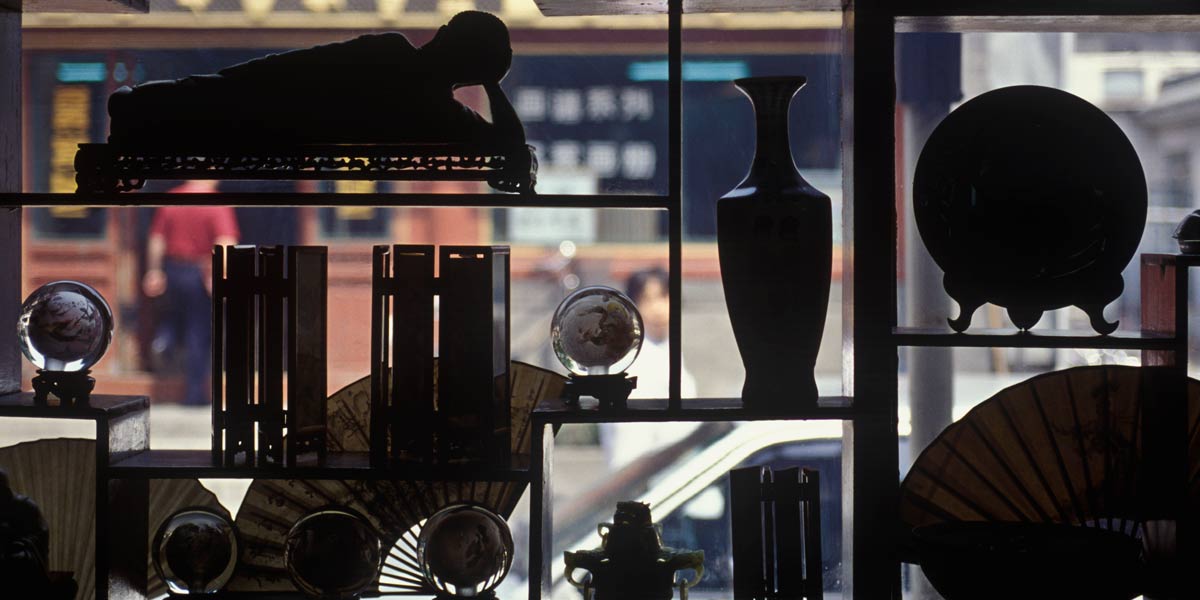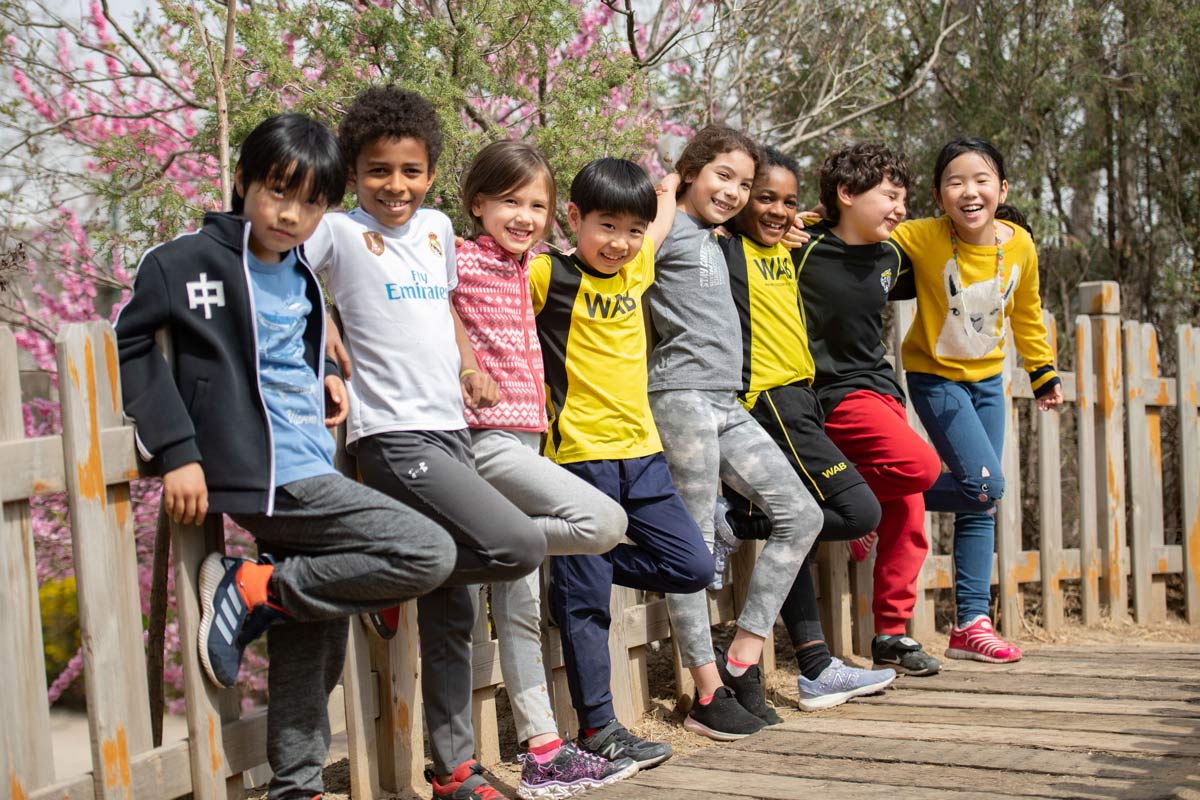Living in Beijing
Overview: Beijing and China
The capital of China, Beijing is a bustling city with more than 22 million people on an area of 16,800km2. Beijing Municipality is flat and has a very orderly grid design – roads from north to south, and from east to west, all circumnavigated by six concentric ring roads. Beijing has many Embassies where most visas for travel can be obtained.
Today, Beijing is a city of vast contrasts – the new intermingles with the old, and the city is developing rapidly. Being a proud member of the WTO and successful host for the 29th Summer Olympics Games in 2008, Beijing has set an even greater pace of development and change in recent years. In winter 2022, Beijing successfully and safely hosted the Winter Olympics despite Covid-19.
Beijing is also home to a sizable expatriate population with members from the business community, NGOs, embassies, journalists, artists and foreign students. Living in
Geography
China is the third largest country area-wise in the world. From the capital Beijing, the government rules 22 provinces and the five autonomous regions of Inner Mongolia, Ningxia, Xinjiang, Guangxi and Tibet. Taiwan, Hong Kong and Macau are all firmly regarded by the PRC as Chinese territory along with some 5,000 islands, both natural and man made. 30 China’s landscape varies from mountainous regions with towering peaks to flat, featureless lands. At the ‘Roof of the World’ Tibet has peaks around 8,000 meters and at the western area of this range is the Himalayas. In such a vast country, the waterways are a central focus for communication and trading links. At 6,300 kilometers long, the Yangtze is the longest river in China, while the Yellow River is China’s second-longest river at 5,460 Kilometres.
Climate
China has great diversity of climate. It is subject to the worst extremes in weather, from bitterly cold to extremely hot. Beijing falls into a temperate climatic zone and has four distinct seasons. The spring and fall/autumn are considered by many people here to be the most favourable seasons of the year. Beijing’s winter is dry and sunny. Air purifiers or humidifiers are common home appliances to beat the dry weather. Snowfall is generally light, usually lasting no more than two or three days, and the temperature is usually barely below 0oC (32oF). Rainfall tends to be limited to the summer when temperatures can be as high as 40oC (104oF) with high humidity (70 – 80%) and UV ratings.
People
China has the world’s largest population of 1.4 billion, of which 93% are Han Chinese and the rest represent 55 different minority nationalities such as Mongolians, Tibetans, Uyghur and Kazaks.
Language
Mandarin Chinese is spoken in Beijing, although there are many local dialects spoken in different parts of the country. Expatriates in Beijing are able to survive with limited Chinese language. Some knowledge of the language can certainly help to make the experience more fulfilling and enjoyable. “Survival” Chinese lessons will be provided for the new staff members during the Orientation Week and after. Staff members who wish to take additional private lessons will easily find many enthusiastic Chinese tutors. The many local Chinese who are learning English are always eager to practice their skills on you, and the 2008 Olympics helped make Beijing a more “English-friendly” city. Many public areas such as subway stations and shopping malls have signs and directories printed in English and restaurants have English menus with pictures, although some translations can be inaccurate and amusing.
Pin Yin, a system of writing the Chinese language using the Roman alphabet, was officially adopted in 1958 to replace the traditional Chinese characters, but fortunately tradition cannot be changed that easily, and now the Chinese characters and Pin Yin are both used at the same time, particularly here in Beijing, such as signs on the road and general public areas.
Religion
In Beijing, there are religious activities for many denominations, including:
- Catholic Mass: The Arts Centre, Shunyi, Saturday 5pm; Canadian Embassy, Sunday 10am; St Joseph’s Cathedral, Wangfujing, Sunday 4pm
- Beijing International Christian Fellowship (Interdenominational) http://www.bicf.org
- Church of the Good Shepherd, Traditional Service, Sunday mornings at 10:00am
- Jewish services at Kehillat Beijing, Capital Mansion on Friday nights
Tourist Attractions
Beijing has an abundance of tourist attractions – some historical and others of the modern kind. Within the city limits there are many: Temples, Tiananmen Square, Forbidden City, Summer Palace, Mao Zedong Mausoleum, Parks, Galleries, Museums, Zoos as well as the traditional Chinese attractions such as acrobats, opera and musicals. Within easy reach of Beijing are the world-renowned attractions of the Great Wall, Temple of Heaven and the Ming Tombs. Many ski resorts are open in the winter months providing skiing options with good-quality snowmaking facilities from mid-December to March. Ice-skating is readily available on frozen lakes right in the heart of the city and at WAB. All of these attractions are easily accessible by taxi, bus or tour bus, and admission fees are very reasonable.
Vacation/Travel
Beijing offers endless travel opportunities within the country. Flights and trains to other parts of China are busy during winter and summer breaks, the Chinese Spring Festival and National Day holidays. Beijing is also a good springboard for interesting and exciting holidays to other parts of Asia: Thailand, Hong Kong, Malaysia, Indonesia, Vietnam, the Philippines and Singapore are easily reached.

Everyday Life in Beijing
Living in Beijing is an exciting adventure – both for singles and families with children. There are many sports and interest groups, imported groceries, exciting night scenes, huge shopping malls and endless cultural events. You will be spoiled for choice.
Shopping
Shopping options in Beijing are ever-expanding as Department stores and mega-malls are opening at a rapid pace. Further, China’s on-line shopping options are the largest in the world.
Sports/Recreation
WAB has sporting facilities that are open for staff use, provided the facilities are not booked for students or official events. Many hotels, residential complexes and shopping malls also have fitness and recreational facilities that are open to the general public. The expatriate community also often organizes social sporting activities such as touch rugby, soccer, ice hockey, basketball, volleyball and badminton.
Household Staff or Domestic Help (Ayi)
Many expatriates in Beijing take advantage of the opportunity to have household staff, commonly known as Ayis (Ah-yee) to take care of the cooking, cleaning, washing, ironing and other household jobs. Some staff members find that employing an Ayi is a bit of a culture shock and takes some time to get used to, especially in terms of a feeling of lack of ‘personal space’ and privacy. A parttime Ayi who works two half days a week will cost approximately 3,000 RMB ($480 USD) per month. A full time Ayi may cost around 5,000 RMB ($800 USD) per month. Ayis are usually paid at the end of each month and around the Chinese New Year, an extra month’s salary is given as a bonus. Wrap it in a red envelope and you will make your ayi happy receiving a “hong bao.”
Electricity
The electrical current is 220 volts. The pictures here show plugs and a socket commonly used in Beijing. A wide variety of adapters and transformers can be easily purchased at local department stores.

Clothing
Staff members are expected to dress in a professional and practical manner for work. In the summer, dress shorts are acceptable for both men and women. Clothing and footwear are abundant and affordable in Beijing. Tailors are available at reasonable prices. If you wear larger sizes you may wish to bring additional clothing or footwear with you. Ladies’ lingerie in western sizes is especially worth bringing from home. For special school events, like International Day, staff members may like to wear something representative of their nationality or culture. You may wish to pack appropriate clothing for occasions like these.
Kitchen supplies & Home Appliances
Basic kitchenware can be easily purchased at department stores, supermarkets, and/ or IKEA: http://www. ikea.com/cn/en/, and common home appliances including hairdryers and fruit juicers are readily available and reasonably priced. However, because home baking is not common in Chinese culture, baking utensils such as the electrical whisk, unique food ingredients or some spices may sometimes be hard to find. Many of the western cooking and baking accessories can now be found online.

Cosmetics and Body Care
A good quality skin moisturizer is beneficial in Beijing’s dry weather. Beijing has an endless range of cosmetics and body care products in their retail stores. Household brands for body care (e.g. Maybelline, Vaseline, Nivea and Lux) and feminine products are readily available. Sephora (http:// www.sephora.cn/) has retail stores across Beijing that boast an extensive selection of skincare and beauty products from international brands including Chanel, Clinique, Clarins, Lancôme, L’Occitane and Gucci.
Mobile Phones
China has an excellent mobile phone network and almost everyone in Beijing owns a mobile phone – with many buying a new model every six months. Most popular brands and models are available, with prices dependent on brand and model. Prepaid phone cards are also easily purchased. Staff members who own mobile phones compatible with Beijing’s mobile networks are encouraged to bring them.
Email/Internet
Internet access and email are provided for staff members through a wireless network at WAB, and all staff members will receive a WAB email address before Orientation Week. Most residential complexes in Beijing provide broadband services, costing 400 RMB per month on average. Sites like Facebook, Twitter, Instagram and YouTube are currently blocked in Beijing.
Laptops and Computers
Teachers are provided with an Apple laptop for their work, which can be conveniently carried around the school and back home. Students are also required to use Apple laptops, which are prepared and maintained by our IT department. Staff members who wish to bring their own laptop should carry it as hand luggage.
Groceries/Food
A wide range of fruits and vegetables are available in both local markets and supermarkets, at prices many consider to be cheap. Rice is a main staple, while beef, chicken, pork and seafood are plentiful. Many imported foods are readily available but are often expensive. An ever-expanding selection of European, American, African, Australian and Asian favorites can be found including confectionary, preserves, cereals, cheeses, condiments, wines and spirits. Jenny Lou’s, Jenny Wang’s and April Gourmet have multiple stores in different locations around Beijing and are a good source of imported products well-suited to expatriate tastes, needs and budgets.
Eating Out
Beijing has an abundance of restaurants. Thai, Indonesian, German, French, Italian, Middle Eastern, American, Turkish, Korean, Russian, Vietnamese and Japanese foods are all available. There are many hotel restaurants, which offer buffets and even Sunday champagne brunches for a little indulgence! You can enjoy a simple bowl of Cantonese noodles for as little as 20 RMB (or $3.20 USD) or you can pay as much as 300 RMB ($50 USD) for Brazilian lamb chops.
Fast food outlets include McDonald’s, KFC, Pizza Hut, Domino’s Pizza, Baskin Robbins, Starbucks, and Haegen Dass to name a few. There are many nightspots and a large range of choices of bars including Irish pubs and TGIFridays.
Tipping
Tipping is not part of Chinese culture and is not expected in most situations. Restaurants, mid-range and above, are steadily closing the gap with a 10% service charge. Porters at upmarket hotels will expect a tip.
Laundry
Laundry can be hard on clothing. Clothes are usually washed in cold water with normal washing detergent and then dried inside the house. Beijing’s dry weather allows clothes to dry quickly. Dry cleaning is readily available and very reasonably priced.
Newspapers/Magazines/Books
There are local English language newspapers (China Daily, Beijing Weekend, etc.) and magazines (That’s Beijing, City Weekend, Metrozine, TimeOut Beijing, etc.) distributed regularly (daily, weekly or monthly). They provide extensive information on community sports, arts, entertainment and many exciting events in and around Beijing. Most of these publications are free and available in hotels, cafes, bars and restaurants. At some hotel bookstores, international newspapers and magazines are available. Paperbacks are available in the school library and often exchanged between staff members. Some English-language paperbacks are available, but can be expensive.
Security
Crime in China is minimal and generally non-violent. Most residential estates employ guards and security services of some kind and it is comforting for you to know that your belongings are as secure as possible. Of course, as with any big city in the world, there are pickpockets and you should take the same care as you would in any other country.
Culture Shock
Foreigners arriving in Beijing should expect to experience culture shock – especially regarding language, food, banking and traffic. Maintain a positive attitude, tone down your expectations, be patient and flexible. In no time, you will progress from merely surviving to actually enjoying your new home in Beijing.
To make the most of the opportunities you will have, start planning for your adventure in Beijing. Find out as much as you can; read up and talk to people who have lived and worked in Beijing. The Beijing City Guide found on our website (linked here) will prove valuable to many, while the following websites provide extensive information that many have found useful: www.thebeijinger.com, www.timeoutbeijing.com and www.beijingnews.net

Embracing Change
Due to the physical, emotional and psychological adjustments you will need to make, moving can be stressful for most people – children, adolescents and adults alike. Dave Pollock, author of the Third Culture Kid Experience, suggests that people build a RAFT for support to ensure a satisfactory closure.
“R” stands for RECONCILIATION.
It is extremely important to reconcile any differences with friends or colleagues. Distance and time only makes it more difficult to rebuild or repair relationships.
“A” stands for AFFIRMATION.
Affirming the importance of close relationships is crucial for a positive closure. Establishing ongoing ways of communication with friends and colleagues is important.
“F” Stands for FAREWELLS.
These are important and help you and the people you leave behind celebrate, value and bring to a close your part in their everyday life and work. If time permits, go to a place that has special meaning for you.
“T” Stands for THINK DESTINATION.
It is important to think about your hopes and dreams. Take note of any concerns and accept that you may experience a range of emotions. You need to think realistically about your new life and consider what may be the positive and negative aspects. Be aware of and examine the strengths and resources you have for coping with problems that may occur.
How can I support my child(ren)?
Help your child(ren) cope with transition by:
- Understanding the process they are going through
- Recognizing the nature of transitions and the emotions that can accompany each stage
- Recognizing the signs of transition-related stress that may occur (stomach aches, headaches, altered sleep patterns, lack of motivation, aggressive or passive behavior changes, etc.)
- Listening to your children and encouraging them to express their feelings. If your children have difficulty talking about their feelings you can:
– Encourage them to keep a diary
– Draw a picture/paint or make a model
– Tell them how you are feeling
– Give them permission to feel sad
- Appreciating how your reaction to the move – either negative or positive, may be impacting your family
- Understanding how your reaction to your present surroundings – either negative or positive – may be impacting your family
- Including your children, in an age-appropriate manner, in making family plans, discussions, and problem solving
- Consulting with your children about what to do with their toys and other items that cannot go with you to your new home
- Recognizing the importance of helping your children say goodbye to pets, friends, teachers, neighbors and household staff
- Helping children who are reluctant to say goodbye by having a party, taking photographs or making a video, a scrapbook, collecting memoirs, addresses, autographs, email addresses, phone numbers, etc.
- Finding time to say goodbye by revisiting a favorite place
- Helping your family find out as much information about their new destination as possible
- Helping your children write a personal journal including their feelings of moving
Most importantly, remember to be open, honest and available. Seek help if necessary. If you have any concerns or need someone to talk to, please contact your section principal or a counselor.
Extra Resources
Books (Available in WAB Libraries)
Culture Shock! Successful Living Abroad – A Wife’s Guide by Robin Pascoe, Graphic Arts Center Publishing Company
Culture Shock! Successful Living Abroad – A Parent’s Guide by Robin Pascoe
Coming Home! – Relocation by Robin Pascoe
Footsteps Around the World – Relocation Tips for Teens by Beverly Roman, Anchor Publishing
Home Away from Home – Turning Your International Relocation Into a Lifetime Experience by Beverly Roman, Anchor Publishing
Let’s Move Together by Carol Schubeck, Suitcase Press
